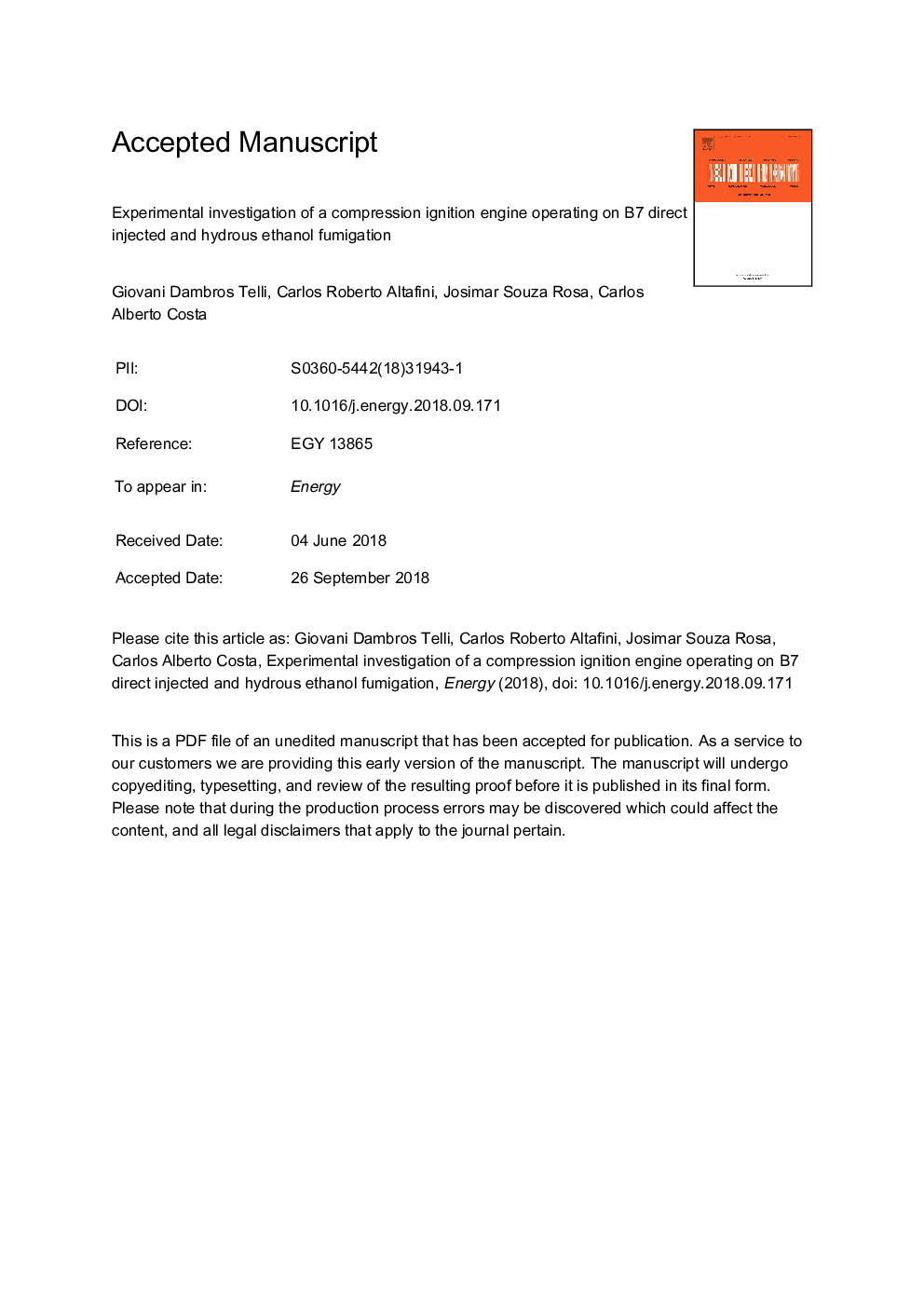| Article ID | Journal | Published Year | Pages | File Type |
|---|---|---|---|---|
| 11015614 | Energy | 2018 | 30 Pages |
Abstract
The increase in prices and our dependence on fossil fuels coupled with concerns about harmful emissions have motivated researchers to look for renewable and alternative fuels that have clean combustion and which can be produced locally. The fumigation of ethanol in diesel engines has been recognized as an effective alternative to improve efficiency and to reduce emissions. In this paper, the effects of a compression ignition engine using B7 and hydrous ethanol by fumigation method has been investigated. Hydrous ethanol was injected in the engine intake manifold by a port fuel injector, representing ethanol energy ratios from 11.5% to 52.3%. The results indicated a maximum decrease about 69% in smoke index, reduction in exhaust gas temperatures and reduction in both CO and CO2 emissions. The lowest CO emission found was 0,11% and CO2 emissions were 4.6% by volume. A maximum increase of 26.2% in thermal efficiency and 22.9% in exergy efficiency was observed. Nevertheless, an increase in HC emissions and specific fuel consumption was noted, achieving the maximum values of 121â¯ppm and 270.2â¯g/kWh, respectively. The results were satisfactory, confirming the potential to use ethanol fumigation method to improve thermal and exergy efficiency and reduce harmful gases.
Related Topics
Physical Sciences and Engineering
Energy
Energy (General)
Authors
Giovani Dambros Telli, Carlos Roberto Altafini, Josimar Souza Rosa, Carlos Alberto Costa,
